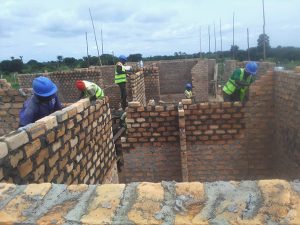Update from Uganda
 In Uganda, MMM have a base in Kansiira, a remote rural area, 180 kms from the capital city, Kampala.
In Uganda, MMM have a base in Kansiira, a remote rural area, 180 kms from the capital city, Kampala.
It is an area that includes ten villages, with mud houses and thatched roofs. The people are poor, with subsistence farming, cattle rearing and fishing in nearby Lake Kyoga as the main sources of income. Most people have one or two meals a day, but the main problem is the lack of clean, safe, drinking water and electricity.
There is no piped water; sources are primarily Lake Kyoga & hand dug holes (dams) serving people & animals. Neither are safe for drinking. Previously small boats allowed people to go 1km inside the lake to fetch cleaner water, but in 2019, these boats were destroyed by the military. People were provided with big boats which are too heavy for women and children. There are only five functional hand pumps in the area. Women and children suffer as fetching water is their responsibility and involves long journeys.
MMM has always had the care of mothers and children as one of their principal concerns. In Kansiira, the maternal mortality rate is 368 per 100,00 live births (in UK & Ireland it is about 5 or 6 per 100,00). The infant mortality is 43 per 1000 live births ( in UK, under 4 per 1000). The need is great! The nearest government facility is 11 kms away, with no maternity or inpatient services and limited/no drug supply. There is also a very high rate of malaria among the population. After listening to the local people MMM has decided to work on two main fronts, clean water and maternal health.
They are working to provide for a bore hole to provide clean, safe water. This can also be used in activities of the health centre, with patients, caregivers and staff, promoting better hygiene and guarding against cross infection and disease.
The facility will provide preventive/curative health care services, community development programmes (IGA’s and women/youth empowerment), currently ongoing in temporary settings. Including out/inpatient (19 bed) services, Maternity & child welfare, diagnostic services (lab, HIV etc). Solar will be the main energy source, a renewable choice. This will enable access during emergencies, childbirth, and safe drug storage.
